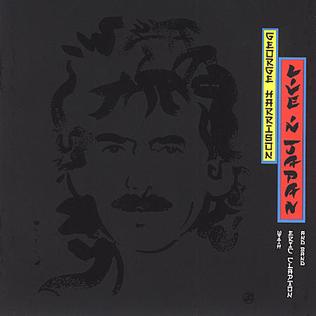
Live in Japan is a live double album by English musician George Harrison, released in July 1992. Credited to "George Harrison with Eric Clapton and Band", it was Harrison's second official live album release, after 1971's Grammy-winning The Concert for Bangladesh. The album was recorded during his Japanese tour backed by Eric Clapton in December 1991, and it contains live versions of Harrison's work as a solo artist alongside many of his best-known Beatles songs. Aside from the 2001 reissue of All Things Must Pass, with previously unavailable bonus tracks, Live in Japan was Harrison's last release before his death in November 2001.

Into the Great Wide Open is the eighth studio album by American rock band Tom Petty and the Heartbreakers. Released in July 1991, it was the band's last with MCA Records. The album was the second that Petty produced with Jeff Lynne, following the successful Full Moon Fever (1989).

No Pocky for Kitty is the second studio album by American indie rock band Superchunk, released in 1991. Pocky is a popular Japanese snack food.

Voodoo Soup is a posthumous compilation album by American rock musician Jimi Hendrix, released in the United States on April 11, 1995, by MCA Records. It was one of the last Hendrix albums produced by Alan Douglas, who was also responsible for the posthumous Hendrix releases Midnight Lightning and Crash Landing in 1975.

Blue Hawaii is the fourth soundtrack album by the American singer Elvis Presley, released on RCA Victor Records in mono and stereo, LPM/LSP 2426, on October 20, 1961. It is the soundtrack to the 1961 film of the same name starring Presley. In the United States, the album spent 20 weeks at the number one slot and 39 weeks in the Top 10 on Billboard's Top Pop LPs chart. It was certified Gold on December 21, 1961, Platinum and 2× Platinum on March 27, 1992, and 3× Platinum on July 30, 2002, by the Recording Industry Association of America. On the US Top Pop Albums chart, Blue Hawaii is second only to the soundtrack of West Side Story as the most successful soundtrack album of the 1960s.

Watusi is a studio album by The Wedding Present. It was released in 1994 on Island Records. It peaked at No. 47 on the UK Albums chart.
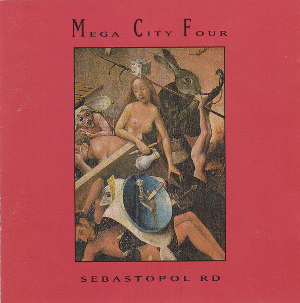
Sebastopol Rd. is an album by the English band Mega City Four, released in 1992. It was the band's only album to be released in the United States; they supported it with a North American tour. The album was reissued in 2013 with a Peel session, among other bonus tracks.

Your Bag is the second studio album by singer/songwriter Lida Husik, released in 1992 by Shimmy Disc.

Love Story is the fourth solo studio album by the English musician Lloyd Cole, released in 1995. Cole supported the album with UK and North American tours.
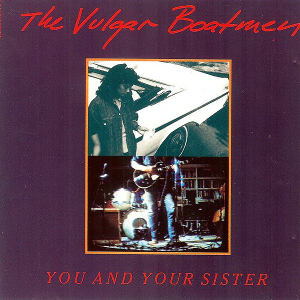
You and Your Sister is the debut album by the American band the Vulgar Boatmen, released in 1989. The Vulgar Boatmen, at the time of the album, constituted two bands: one based in Florida and one based in Indiana. The band supported the album with a North American tour. "Drive Somewhere" was released as a single.
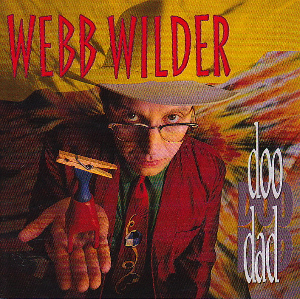
Doo Dad is an album by the American roots rock musician Webb Wilder, released in 1991.

Go Go Harlem Baby is an album by the American punkabilly band Flat Duo Jets. It was released via Sky in 1991. The band supported the album with a North American tour.

Teenage Symphonies to God is the second album by the American band Velvet Crush, released in 1994. The title of the album is a reference to Brian Wilson's description of the music he was creating for Smile. Teenage Symphonies to God had sold around 20,000 copies by the end of the 1990s.

Tenement Angels is an album by the American musician Scott Kempner, released in 1992. Kempner supported the album by touring with Jason & the Scorchers.
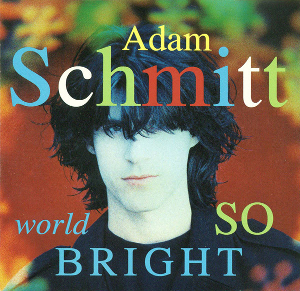
World So Bright is the debut album by the American musician Adam Schmitt, released in 1991. Schmitt supported the album by opening for the BoDeans on a North American tour.
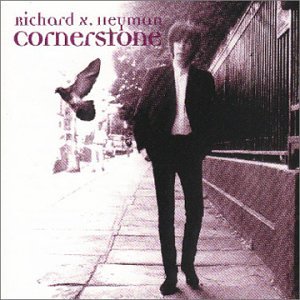
Cornerstone is an album by the American power pop musician Richard X. Heyman, released in 1998. It was Heyman's first album in almost seven years.

What About Regret, stylized as (What About Regret), is an album by the American musician Kate Jacobs, released in 1995. Jacobs promoted the album with two tours, one with a full band and one with just a bass player.
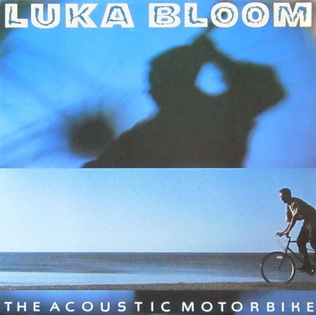
The Acoustic Motorbike is the second album by the Irish folk musician Luka Bloom, released in 1992. Its title refers to a joke made by Moore, comparing himself to the "Harley Davidson" that is Eddie Van Halen.
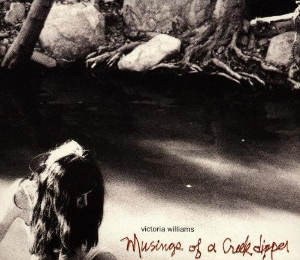
Musings of a Creek Dipper is an album by the American musician Victoria Williams, released in 1998. The album cover artwork is a photograph of Williams in an Oxnard, California, creek. Williams supported the album with a short tour, which included playing the Calgary Folk Music Festival.

Love and Danger is an album by the American musician Joe Ely, released in 1992. It marked Ely's return to MCA Records. He supported the album with a North American tour.




















